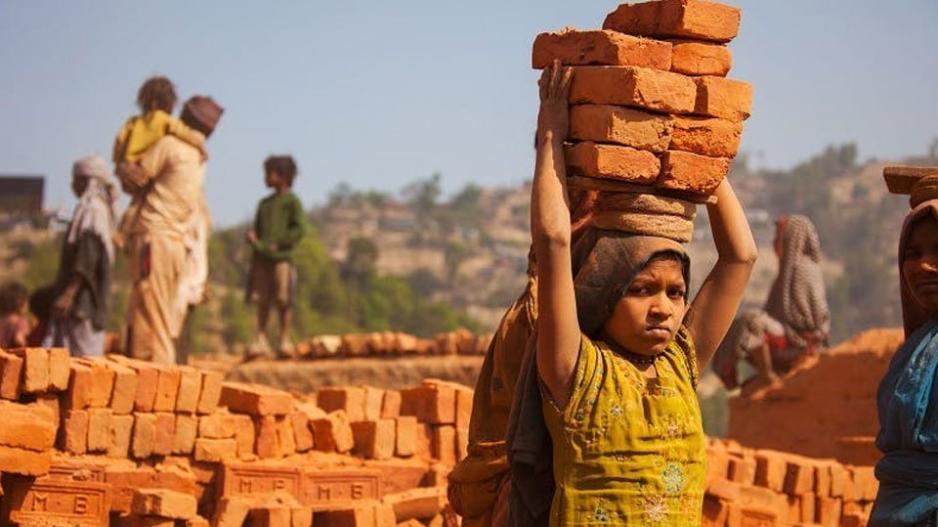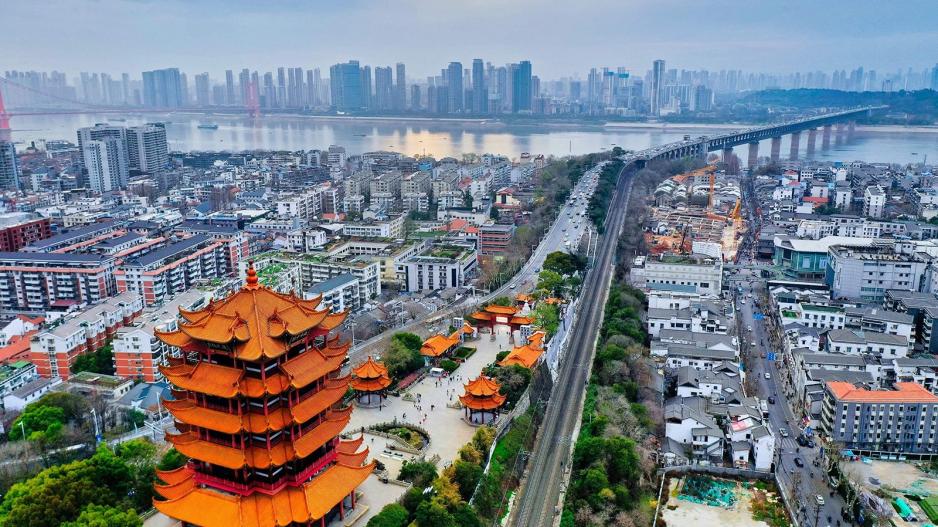Germany's Struggles, AI in Business and Entertainers Filling the US Economic Dance Floor
Today's Top Business & Finance Stories Around the Globe
Recent economic data spells trouble for the Eurozone, heightening concerns of an impending financial crisis. Leading nations within the region are showing worrisome signs of economic contraction, with little room for governments to maneuver and stave off disaster.
German Chancellor Olaf Scholz has recently faced harsh criticism, including allegations that he is presiding over a disjointed coalition government unable to tackle Germany's economic woes effectively. The country is teetering on the edge of becoming Europe's weakest link economically, which is particularly concerning as it has traditionally been the region's strongest performer.
Freshly released indicators amplify the gloom. Economic experts had predicted that Germany would be the sole major European country to see its economy shrink this year. Their forecasts seem on point as the Purchasing Managers’ Index (PMI) for August reached its lowest since the pandemic began, indicating a 0.7% GDP contraction. The Ifo Business Climate Index also showed a 1% decline for the quarter, signaling recessionary winds.
Moreover, France is grappling with a skyrocketing inflation rate of 5.7%, exceeding average estimates of 5.4%. The sudden surge, primarily due to rising energy costs, serves as a bellwether for the Eurozone, demonstrating that financial issues in one member nation can reverberate across the region.
Italy and Spain haven't escaped the economic malaise either. Italy's economy contracted by 0.4% in the second quarter compared to the first three months of this year, exceeding initial estimates. Meanwhile, Spain faces its own concerns as record-breaking inflation driven by soaring energy costs sets the stage for an imminent hike in interest rates by the European Central Bank (ECB).
The ECB’s past decisions and actions have pushed the Eurozone into an increasingly precarious situation. Sky-high interest rates and mandatory cuts in public expenditure have dampened growth and created recessionary pressures. As Jamie Ross of Bloomberg Economics points out, countries with high levels of public debt could soon find themselves in an untenable position, unable to balance their budgets.
If recession does engulf the Eurozone, political leaders might place the blame squarely on the ECB, especially with European elections looming in June 2024.

The International Labor Organization's Director, Gilbert Houngbo, is raising a red flag about the increasing number of children leaving school to work, a crisis he links to mounting economic woes globally. Speaking to the BBC, he urged swift interventions, revealing that children are subjected to horrifying working conditions, including sexual exploitation.
The catastrophic impact of the Covid-19 pandemic, compounded by ballooning inflation and escalating costs of living, is deepening the crisis. Houngbo warns that unless immediate, decisive measures are taken, the situation will deteriorate further.
Data from the UN substantiates his claims, showing that child labor involved approximately 160 million children in 2020. What's even more unsettling, Houngbo says, is that these figures are not decreasing.
Family budgets are under extreme pressure due to globally surging prices for essentials like food and energy, a crisis intensified by the Ukrainian conflict. The financial strain is pushing some families into desperate measures, including pushing their children into the most degrading forms of labor to survive.
The scourge of child labor is not confined to any specific income bracket or sector, according to Houngbo. From agriculture to construction, child labor is a universal issue. He emphasizes that the crux of the problem lies in systemic poverty.

The financial fragility that has long plagued China's economy is reaching a critical point, particularly within its building and property markets. Leading companies such as Country Garden are teetering on the edge of financial ruin, while giants like Evergrande have already succumbed to bankruptcy. This puts additional strain on a Chinese economy already grappling with a decrease in worldwide consumer demand.
This precarious situation has its roots in China's rapid transformation into an urban society. Two decades ago, only a minority lived in cities. Today, urban dwellers constitute the vast majority. Initially, the state shouldered the burden of providing affordable housing to accommodate the influx from rural regions. However, as governmental backing receded, leading construction corporations turned to high-risk financial strategies. A common practice was pre-selling residential properties to fund ongoing projects and repay outstanding loans. Evergrande serves as a stark example of how these precarious financial practices can lead to a spectacular downfall. It imploded in 2021 after its debts spiraled into the hundreds of billions.
This crisis has created a domino effect, hitting other major players who together accounted for nearly half of all home sales in China. Their bankruptcy since the middle of 2021 has left countless housing projects unfinished and scores of suppliers and workers unpaid. Even more devastating is the impact on the general populace, many of whom invested their savings in what was perceived as the most secure asset—property. Now, these individuals are facing the grim reality of losing both their investments and their homes. This unfolding disaster has severely eroded faith in both the resilience of China's economy and the government's ability to manage the crisis effectively.
China's current economic troubles are ironically rooted in the very tactics that once fueled its astonishing expansion. About 40 years back, Deng Xiaoping, who was the nation's leader at the time, initiated landmark policies that paved the way for China to engage with the international market. At that stage, China was an underdeveloped nation lacking in essential amenities such as housing, education, and infrastructure. Utilizing a vast, low-cost labor pool, the nation quickly ascended as a global manufacturing powerhouse, displaying phenomenal growth rates that amazed Western countries.
In the initial two decades of this transformation, the living standards of China's citizens rose significantly, with household spending making up almost 50% of the economy. However, despite entering the World Trade Organization in the early 21st century, China struggled to shift from an investment-heavy model to a consumer-based one. As a result, the share of household spending in the economy dwindled to well below global norms.
In a desperate bid to keep the economic engine running, regional governments and corporations resorted to reckless borrowing, financing ventures that eventually turned out to be unproductive. This overzealous investment strategy led to the rise of empty residential complexes known as "ghost cities" and state-of-the-art airports that remained unused. All of this borrowing has caused China's total debt to balloon to a staggering 300% of its Gross Domestic Product, a figure that is quadruple the size of its actual economy.

The transformative power of AI technologies such as ChatGPT is making waves in how public institutions and private enterprises manage data, particularly in a global trading system that exceeds $30 trillion in value.
The onset of the COVID-19 crisis fast-tracked the integration of machine learning in sectors ranging from banking to telecoms. Now, as the world grapples with persistent disruptions to international trade, advanced AI models have emerged as invaluable tools for navigating the world's complicated supply infrastructure.
"As we look to the future, the role of advanced analytics, guided by comprehensive data from the entire supply chain, cannot be overstated," observed Julie Gerdeman, who helms Everstream Analytics, an organization focused on assessing supply chain vulnerabilities. "The automation of key decisions, driven by this data, will lead to supply networks that are not just resilient, but also finely tuned to mitigate a variety of risks."
As the world continues to globalize, the importance of AI in trade is ascending sharply. While the past few years focused on reducing trade impediments, the landscape is shifting. A proliferation of new barriers like tariffs and geopolitical volatility will require even the most veteran logistics teams to adapt and manage a new layer of complexity.

A Morgan Stanley analysis reveals that the American economy benefited significantly from the entertainment sector in the third quarter of 2023. Concert tours by pop icons Beyoncé and Taylor Swift, along with summer blockbuster films Barbie and Oppenheimer, were responsible for pumping $8.5 billion into the economy. Interestingly, the concerts were the lion's share of this contribution, accounting for roughly 67% of the total amount.
Not only did these entertainment events generate revenue, but they also had a notable impact on critical economic metrics. They collectively contributed to a 0.7% uptick in consumer spending across the country and a 0.6% increase in the nation's GDP during that quarter. Revenue from ticket sales for Beyoncé's "Renaissance" tour, Taylor Swift's "Eras" tour, and admissions for the movies — colloquially grouped as "Barbenheimer" — is expected to tally up to this impressive figure.
However, financial analysts predict a dip in consumer spending in the final quarter of the year. The primary reasons cited are the ending of these blockbuster tours and the ongoing burden of student loan repayments.
According to Morgan Stanley, the ripple effects of this entertainment bonanza led to a significant year-over-year boost in consumer spending by 1.9%. Within the third quarter, these entertainment activities were responsible for a 0.7% increase in Personal Consumption Expenditures (PCE) and contributed 0.6% to the GDP. Data from the Bureau of Economic Analysis indicates that the consumer spending rate in July was at its highest level since January, increasing by 0.8%.






